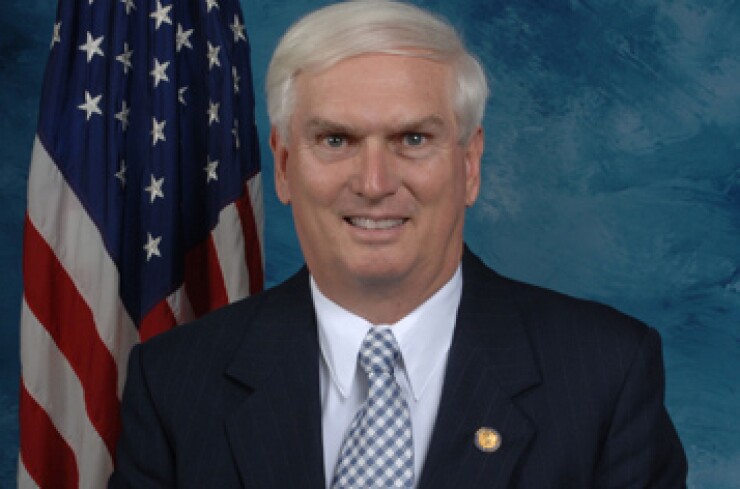
DALLAS — Private-activity bonds issued for water and wastewater projects would be exempt from state volume caps under bipartisan legislation introduced Thursday in the House by Reps. John Duncan Jr., R-Tenn., and Bill Pascrell, Jr. D-N.J.
The two congressmen said removing these bonds from volume caps would provide easier access to private funding for water and wastewater infrastructure projects through public-private partnerships.
The Sustainable Water Infrastructure Act of 2014 (H.R. 4237), similar to President Obama's fiscal 2015 budget request, would amend the Internal Revenue Code to carve out an exemption from the state volume cap for "bonds for facilities for furnishing of water and sewage facilities."
Exempting the bonds from the state volume limit would allow local and state governments to leverage up to $50 billion of private investments for water projects, Duncan, co-chair of the House Clean Water Caucus, and Pascrell said.
Duncan cited an estimate from the Environmental Protection Agency that $682 billion in infrastructure improvements are needed over the next 20 years to meet safe drinking water and sanitation standards.
"If we do not start investing in our water infrastructure now, it is going to cost our nation many billions more in the future," he said.
Water projects are eligible for PAB funding, Duncan said, but must compete with housing, transportation, and others for limited capacity under state volume caps.
The need for additional investment in infrastructure is proven in the news every day, Pascrell said.
"The story of our deteriorating water infrastructure can be told though the seemingly endless water main breaks in communities across our country," Pascrell said.
"By encouraging private investment dollars to help fund critical water infrastructure upgrades instead of public tax dollars, we are making key investments in our country's future at a greatly reduced cost to the taxpayer," he said.
The national PAB volume cap was raised to $34.9 billion in 2014 from the 2013 cap of $33.2 billion.
The new state volume caps were determined by population and a more-general formula released in November 2013 by the Internal Revenue Service.
State caps for this year are based on the greater of $100 per state resident or $296.83 million, up from $95 per resident or $291.9 million last year. Unused PAB capacity may be carried forward for three years.
Less than 2% of PABs are designated for water or wastewater projects.
Exempting water PABs from state volume caps would create 1.4 million jobs and generate $101.5 billion in tax revenue for federal, state and local governments, Duncan said.
"Much of our nation's water infrastructure is more than 100 years old, and this bill will empower more states and towns to raise the funds needed to address this growing problem," said Duncan. The bill was referred to the House Ways and Means Committee.
A similar proposal — the Sustainable Water Infrastructure Investment Act of 2011 (H. R. 1802) — was introduced in the House and Senate three years ago by Pascrell, but it did not move forward after being referred to Ways and Means.
Duncan is vice chairman of the House Transportation and Infrastructure Committee and chairs the Panel on Public-Private Partnerships created in January by committee chairman Rep. Bill Shuster, R-Pa., and Rep. Nick Rahall, D-W.Va., the transportation committee's ranking minority member.
Pascrell serves on the Ways & Means and Budget committees.





